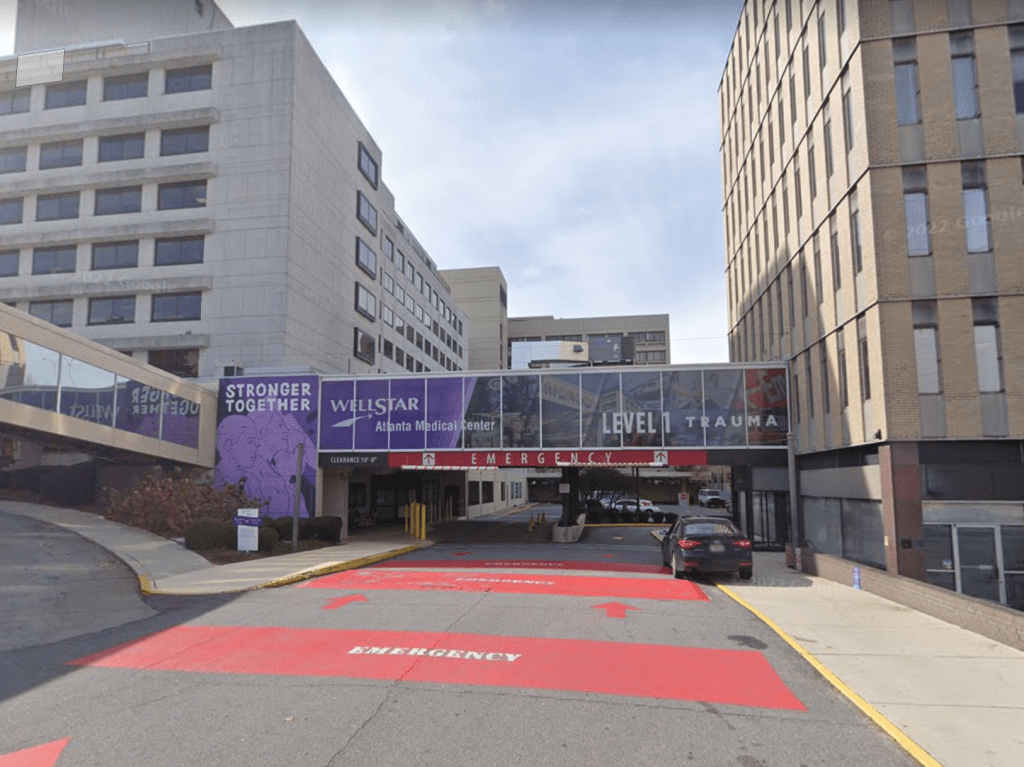
It was with great distress that I learned of the imminent closure of Atlanta Medical Center (AMC). This facility, formerly Georgia Baptist Hospital, has served the people of Georgia for over 120 years. I grew up south of Atlanta and even worked in a small-town hospital where we knew AMC well. It is where we sent most of our patients whose acuity we could not handle. I decided to go to nursing school and pursue employment at AMC because of that tertiary exposure. After graduation, I interviewed for multiple jobs, but was the most impressed with my walk-through of the integrated AMC ICU. Trauma, vascular, neurological, surgical, and bariatric were just some of the terms used to describe the varied patient populations.
I am deeply disappointed both by WellStar’s decision to close Atlanta Medical Center and our state leadership’s decision to pour resources into Grady Hospital rather than salvage AMC. Moving AMC’s resources around the greater Atlanta area is not going to mitigate a worsening health crisis. AMC is a Level 1 Trauma Center, but did you know AMC is also a Stroke and Bariatric Center? In addition, AMC has one of the main labor and delivery units where many Atlanta OB/GYNs and midwives practice.
AMC’s imminent closure is resulting in the closure of private medical practices that use AMC’s office spaces. This will cause a huge gap in patient care. Many citizens will be left without primary care, OB/GYN, cardiologist, or neurologist, etc. Patients referred elsewhere may not be able to secure health care services, as not every practice is taking new patients or accepting Medicare or Medicaid. Another unintended consequence is that many nurses will decide to retire instead of starting over at a different location. As UAPRN of Georgia President, I assure you the loss in experienced nursing knowledge and skill will be immeasurable.
For decades, there have been two major healthcare resources in downtown: AMC and Grady, and Grady Hospital has been at capacity for as long as I can remember. Frequently, while working the AMC trauma ICU, we nurses were told that Grady was on diversion (meaning, the facility could not take anymore patients) and so AMC opened trauma beds. Regularly, Grady and AMC would split the Level 1 trauma admissions.
Many medical professionals, including myself, predict that with AMC’s closing, people across the southeast who rely on AMC will lose their lives due to delays in care. As a country, we have come together to regulate business and industry for the sake of good ethics and supporting humanity. Distress has been felt at rural hospital closures; but the distress of losing this critically-important, inner-city 460-bed hospital will be enormous.
It’s time we make laws to prevent the loss of healthcare resources in the name of business profits. In the state of Georgia, an organization must prove ‘certificate of need’ to open a hospital. I propose organizations prove ‘certificate of need’ to close a hospital. More community engagement and transparency could have prevented this contribution to the worsening healthcare crisis.
I am calling on all the people of Georgia, especially legislators, to consider what changes we make moving forward to avoid future closures such as this. Healthcare is not a partisan issue. There is room for positive change within Georgia’s healthcare laws. One significant change includes lifting restrictions on advanced practice nurses. This change will open access to quality healthcare for our citizens and put Georgia in line with 26 states, the District of Columbia, and two U.S. territories that allow full practice authority for nurse practitioners. I encourage all who read this to write your legislators and let them know that you support more access to healthcare for Georgians. Let’s commit to working together. United, we can make positive change and increase access to quality healthcare for all the people of Georgia.
